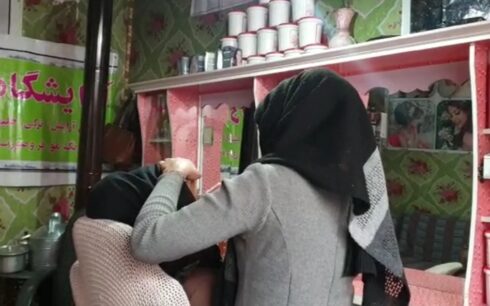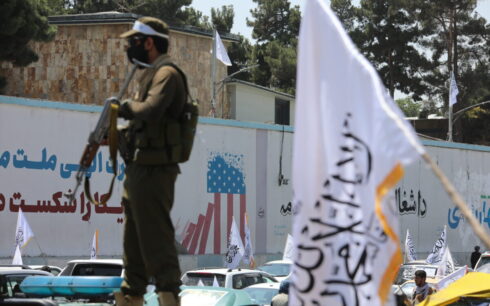Sixty-four human rights and transitional justice groups have signed an open letter urging legal action against Cheryl Benard, the wife of former U.S. special envoy for Afghanistan’s peace Zalmay Khalilzad, accusing her of complicity in alleged crimes against Afghan women.
In the letter, addressed to the International Criminal Court (ICC), the signatories — which include the Civil Service Women’s Movement, Afghan Republican Women’s Network, Afghan Women for Peace and Freedom, and other Afghan diaspora and feminist organizations — allege that Benard played a promotional and participatory role in what they describe as the systematic erasure of women’s rights under Taliban rule.
The groups claim that their appeal is grounded in international legal frameworks, U.N. reports, and documented testimonies from victims. They argue that Benard has “whitewashed” the Taliban’s policies, denied structural violence against women, and advocated for the return of refugees to what they describe as a “gender apartheid regime.”
Benard, a political analyst and writer, traveled to Kabul earlier this year and has recently made headlines for a controversial op-ed published in The National Interest in which she downplayed concerns about the Taliban’s treatment of women and dismissed some media reporting on the issue as exaggerated.
While acknowledging that the Taliban’s education bans on girls and women are “unacceptable and without religious justification,” Benard questioned the severity of the restrictions. She encouraged returning refugees to consider enrolling their children in private schools and criticized international isolation of the Taliban government as “unjust and bizarre.”
She also suggested that women in India face worse conditions than those in Taliban-ruled Afghanistan, stating, “The treatment of women [by the Taliban] is nowhere near as brutal as that in India, a powerful and advanced country.”
Her comments sparked backlash among Afghan women’s rights advocates, many of whom see her statements as part of a broader effort to legitimize a regime that has systematically stripped women of rights to work, education, and public life.
Benard is not a U.S. official and does not hold a formal position in any government. However, critics argue that her close connection to Khalilzad — who oversaw the negotiations that led to the U.S.-Taliban deal in Doha — has given her a platform that amplifies pro-Taliban narratives in Western discourse.
As of now, neither Benard nor Khalilzad has responded publicly to the letter. The ICC has not commented on whether it will take up the groups’ request for an investigation.





